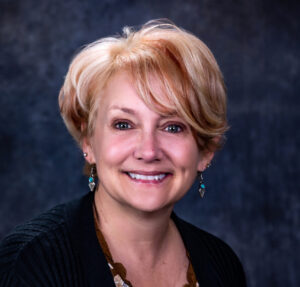HELP PAYING
Your Bill

Sherry Cowan, MCH Eligibility Specialist
Financial Assistance Policy – Plain Language Summary
Mountains Community Hospital (MCH) offers financial assistance through its Charity Care Discount Payment Policy to patients unable to pay for inpatient and outpatient services that are medically necessary. MCH’s Charity Care Discount Payment Policy applies to Hospital charges only. The Emergency Room Physicians and Radiologists are separate from MCH; therefore, MCH’s policy does not apply to their Professional Fees.
Eligibility Information
Uninsured Patients
Uninsured patients with family income at or below 200% of the current Federal Poverty Level (FPL) may qualify for full charity care (free care). If an uninsured patient’s family income is between 201% and 400% of the current FPL guidelines, they may qualify for partial charity care based upon a sliding scale.
Insured Patients
If an insured patient’s family income is between 0% and 400% of the current FPL, the patient may qualify for partial charity care based upon a sliding scale.
How to Apply for Financial Assistance
Below are the links for MCH’s Charity Care Discount Payment Policy and Application. You must submit proof of income documents with your application.
Charity Care and Discount Payment Policy
Charity Care Application
Charity Care Application Spanish
Contact information for MCH Eligibility Office. MCH Eligibility Office is available to assist you with Financial Assistance.
MCH Eligibility Office Phone Numbers
Sherry Cowan (909) 336-3651 extension 3535
Gala Artiaga (909) 436-3251
Elizabeth Zuniga (909) 436-3061 (Spanish Speaking)
MCH Eligibility Office Address
29099 Hospital Road, Suite 103
Lake Arrowhead, CA 92352
Hospital Bill Complaint Program
The Hospital Bill Complaint Program is a state program that reviews hospital decisions about whether you qualify for help paying your hospital bill. If you believe you were wrongly denied financial assistance, you may file a complaint with the Hospital Bill Complaint Program. Go to HospitalBillComplaintProgram.hcai.ca.gov for more information and to file a complaint.
Help Paying Your Bill
There are free consumer advocacy organizations that will help you understand the billing and payment process. You may call the Health Consumer Alliance at 888-804-3536 or go to healthconsumer.org for more information.
Help in Your Language
If you need help in your language, or in an alternative format (such as large print, braille, audio, or via other accessible formats), please call or visit the MCH Eligibility Office. See contact information for MCH Eligibility Office above. They can conference in our language translation partners.

